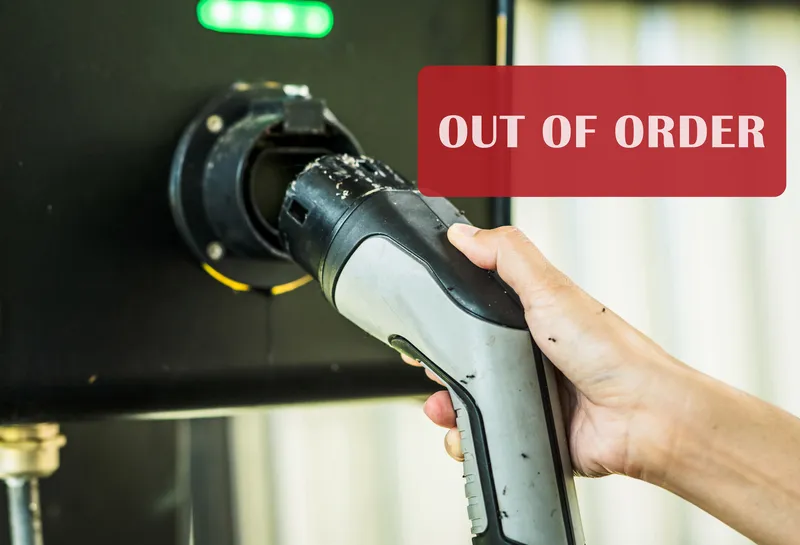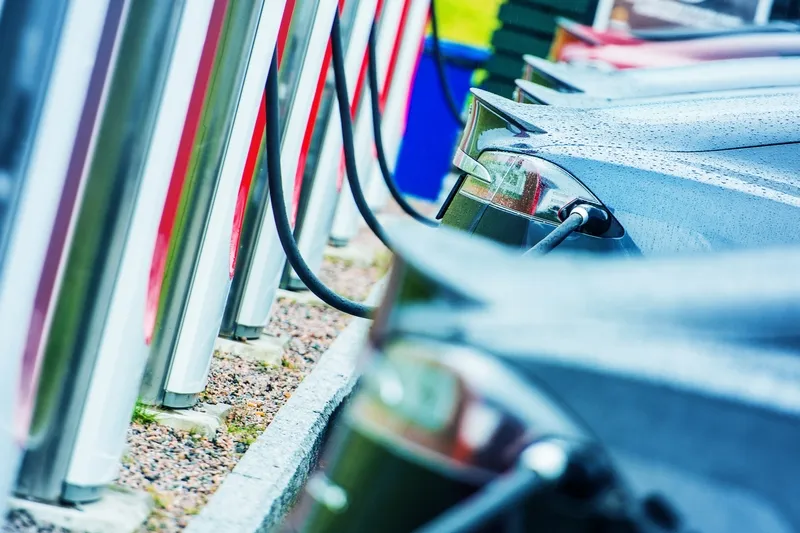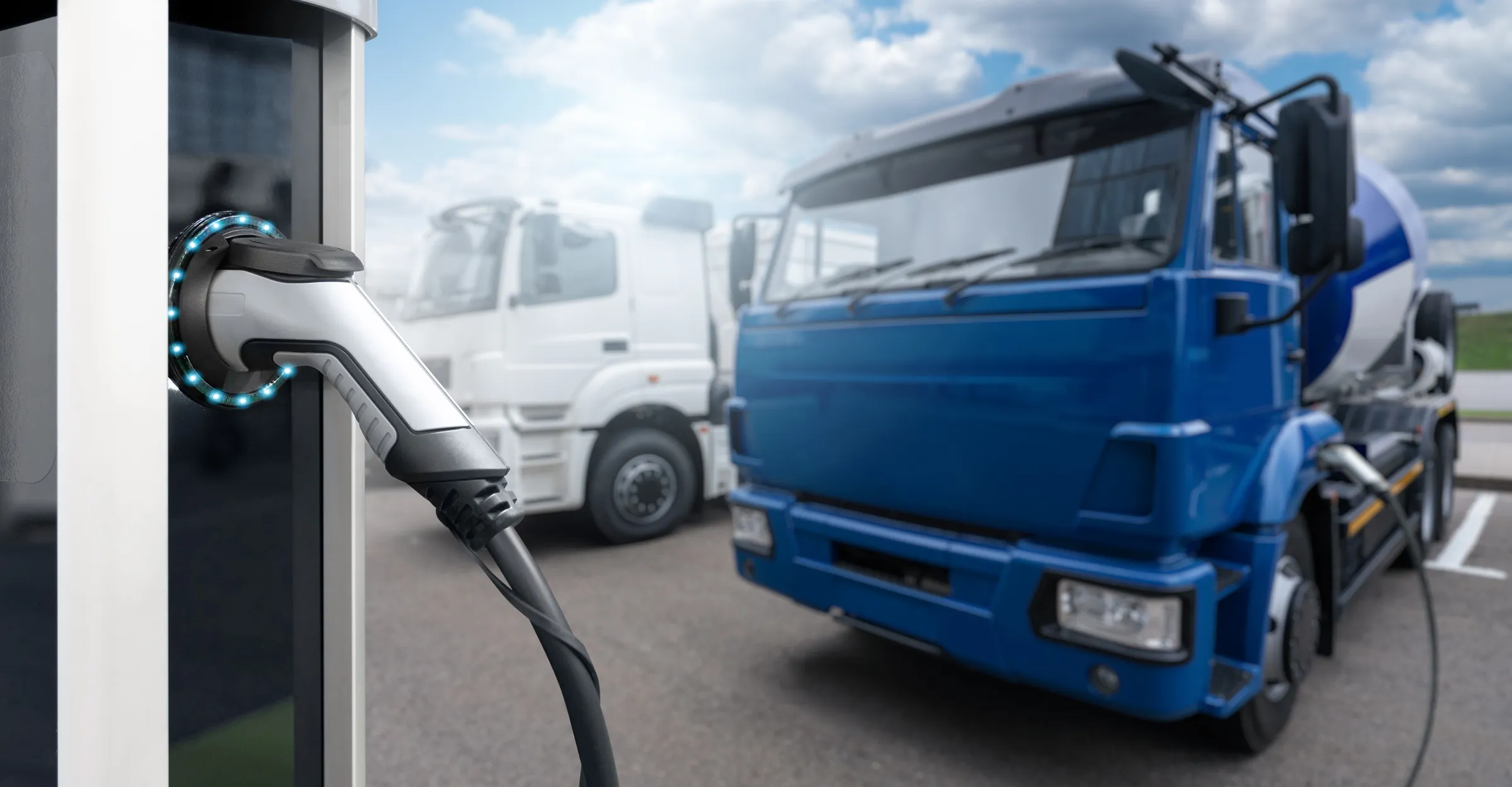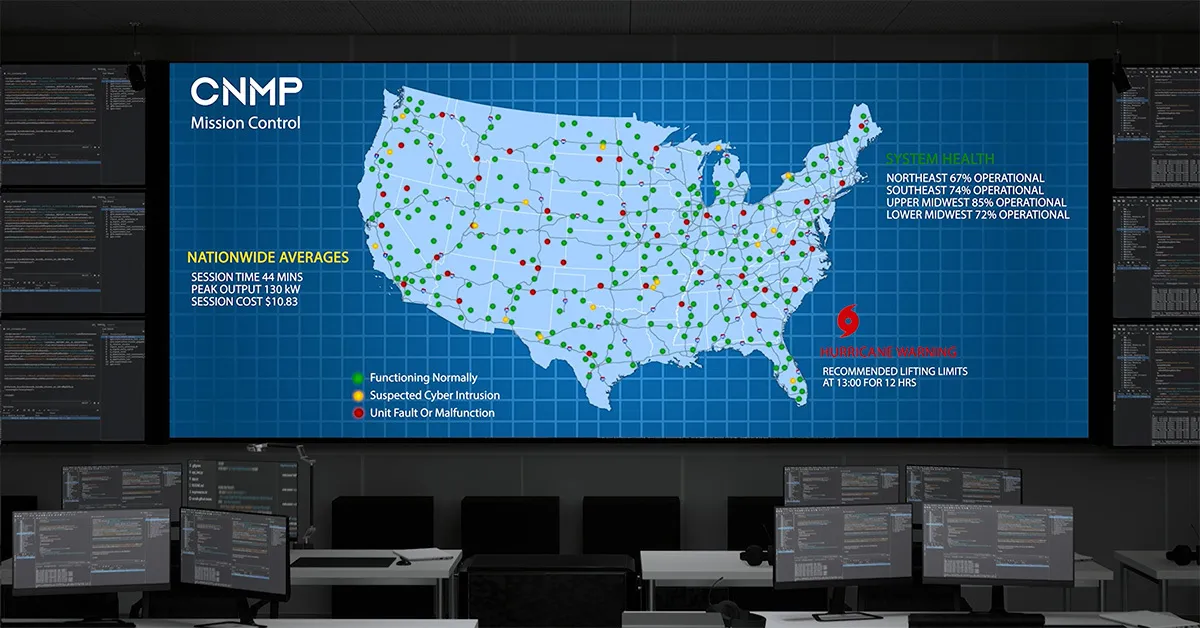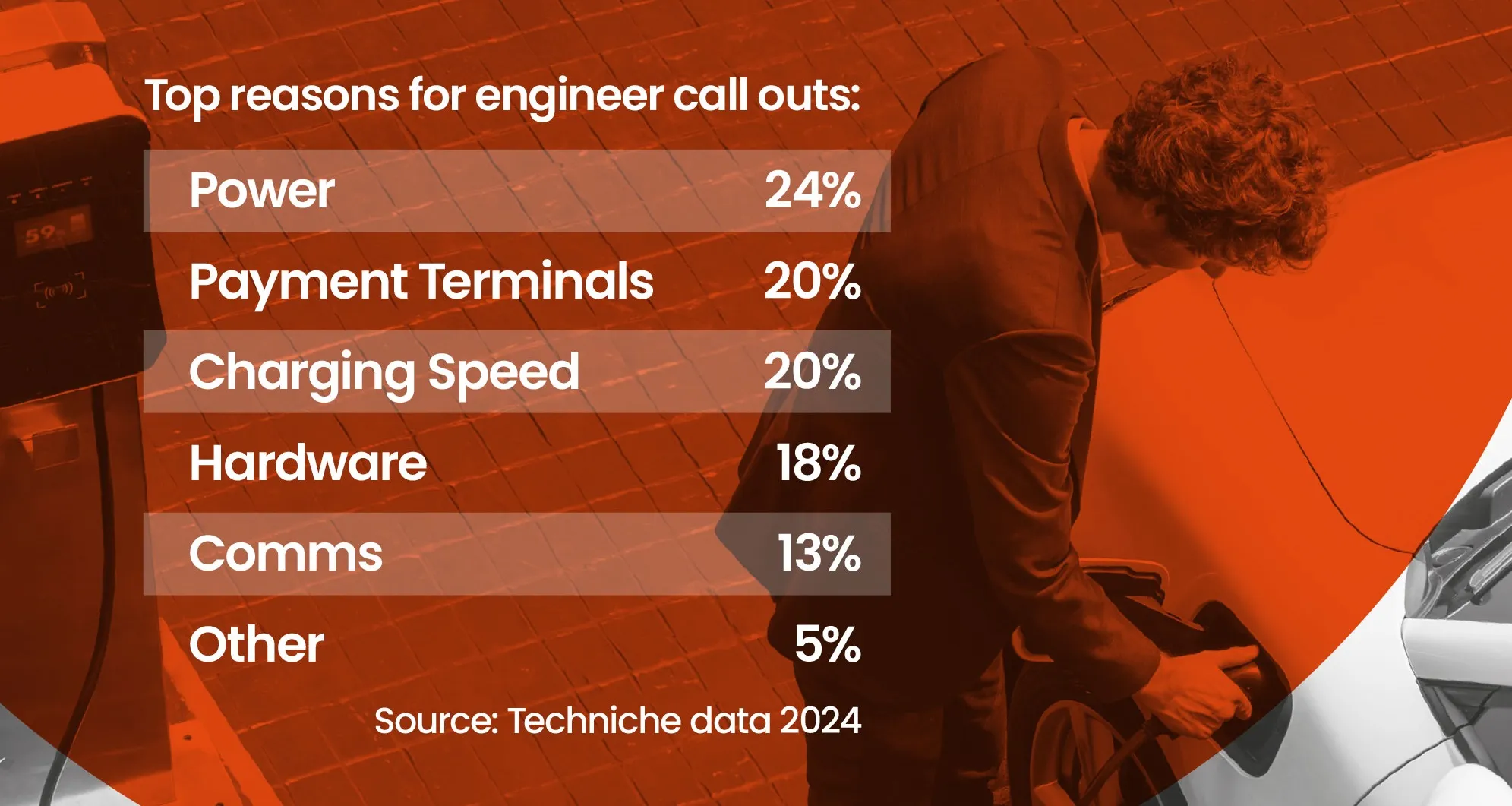
Problems with the power supply were the primary reason, responsible for 24% of engineer callouts. Payment terminals (20%), slow charging or charging failures (20%) and hardware failures (18%), each generated the next highest number of callouts, while communications failures caused 13% of engineer visits.
The analysis also revealed that 70% of EV charger breakdowns can be solved remotely, using automation to reset a charger’s internal software.
Techniche analysed data from 5,000 EV chargers across its European customer sites in the UK, Ireland, Netherlands, Germany and Spain over the last year. Chargers were mostly 150-175kWh fast chargers less than five years old, located in public charging locations, mainly at forecourts, retail parks and supermarkets.
Top reasons for engineer callouts:
1. Power supply 24%
2. Payment terminals 20%
2. Charging speed/failures 20%
4. Hardware failures 18%
5. Communication problems 13%
6. Other 5%
David Cornish, head of product at Techniche, said: “Analysis of our data shows that 70% of EV charger breakdowns can be solved remotely but the remaining 30% require an on-site engineer to get them up-and-running again. It’s this 30% which causes the biggest headache for operators, resulting in slow repairs, unwanted downtime and a bad experience for drivers. Better confidence in the charging process can be gained by automating resets and the maintenance process to make faulty chargers available for drivers as quickly as possible.”
“The findings indicate there is much work to be done on improving the grid infrastructure with power issues being the single largest reason for callouts. This could be further compounded during the roll-out of chargers to more remote or rural locations, or the installation of power-hungry rapid chargers in urban areas, which present a challenge for power delivery.”
Glitches with payment terminals were only responsible for 20% of callouts but not all rapid chargers today have contactless payment terminals. Cornish continued: “This figure could increase in the UK in coming months, with the government mandating that contactless payments be made available on all new rapid chargers, in addition to existing rapid chargers already installed, by November 2024.”
Reasons for callouts in more detail:
Power supply problems – 24%
These include power failures, low voltage and other errors related to grid, substation or battery-backed storage facilities
Payment terminals – 20%
These include card payment terminals and card readers not working, being tampered with, showing a blank screen or suffering an RFID failure
Charging speed/failure – 20%
This category relates to the charging process itself, including continued problems with charging speeds, not charging or interrupted charging
Hardware failures – 18%
These include any charging terminal hardware failures, which could be a damaged housing, plug, cable or touch display
Communications problems – 13%
These include chargers which are simply failing to respond and go offline. Reasons include SIM card failures or issues with wireless or wired networks


